Xi’s warning of ‘drastic action’ to Joe Biden
China’s supreme leader, Xi Jinping, warned US President Joe Biden that he would take ‘drastic actions’ if he felt provoked by Taiwan.
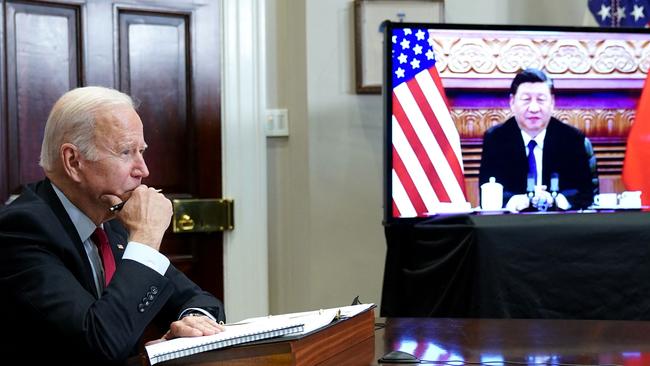
China’s supreme leader, Xi Jinping, warned US President Joe Biden that he would take “drastic actions” if he felt provoked by Taiwan, during a meeting that underscored the profound tensions between the two superpowers.
Mr Biden had earlier told Mr Xi that the US and China needed to establish “commonsense guardrails” to make sure their great power rivalry did not escalate into military conflict.
“It seems to be our responsibility – as leaders of China and the US – to ensure that the competition between our countries does not veer into conflict, whether intended or unintended,” Mr Biden said.
“None of this is a favour to either of our countries … but it’s just responsible world leadership and you’re a major world leader. So is the US.”
Their virtual meeting follows months of rising tension, particularly over Taiwan, which Beijing considers a wayward province.
The day before the meeting, Mr Xi’s People’s Liberation Army flew six fighter jets near the democratically ruled island of 23 million people.
Behind closed doors in Beijing’s Great Hall of the People, China’s leader warned Mr Biden about building closer links with Taiwan.
“If Taiwan independence separatist forces provoke or even break through the red line, we will have no alternative but to take drastic measures,” Mr Xi said, according to China’s official newsagency Xinhua.
“Some people in the US intend to ‘use Taiwan to control China’.
“This trend is very dangerous and is like playing with fire, and those who play with fire will get burned.”
Mr Xi told the American President it was his responsibility to fix the strained bilateral relationship.
“It is hoped that Mr President will … push US policy towards China to return to a rational and pragmatic track,” he said, according to Xinhua.
The White House later described the meeting as “respectful, straightforward and open”, but its statement revealed their huge array of divergent interests.
Mr Biden raised concerns about China’s practices in Xinjiang, Tibet and Hong Kong, as well as human rights more broadly, along with frustration with its trade policies.
The President, in his third conversation with Mr Xi this year, also spoke up for partners and allies, including Australia.
“President Biden underscored that the US will continue to stand up for its interests and values and, together with our allies and partners, ensure the rules of the road for the 21st century advance an international system that is free, open and fair,” the White House said in a statement after the meeting.
In a separate briefing with reporters immediately after the event, the White House played down any concrete achievements.
“We were not expecting this meeting to somehow be a fundamental departure point in where we’re at in the relationship between US and China, we weren’t expecting a breakthrough, and there’s none to report,” a senior official said.
“Easing tensions is the wrong way of looking at the purpose of the evening … a little bit of old model on how to think about the relationship between the US and China,” she added, pointing out that “on Taiwan, nothing new was established in the form of guardrails or any other understanding”.
The call, requested by Mr Biden, aimed to limit the chance of military confrontation between the two superpowers.
“It’s no secret they have a real difference of views; the President was quite clear and candid … including broader concerns about ways in which China was seeking to reshape the rules of the road in ways that are fundamentally not consistent with international order,” the senior official told journalists.
It was the third conversation between the two leaders since Mr Biden became President in January but their first communication since September 9, a week before the AUKUS security pact emerged between the US, Britain and Australia that will see the latter get nuclear-powered submarines.
Hua Chunying, a Chinese foreign ministry spokesman, said the meeting was “wide-ranging, in-depth, candid, constructive, substantive and productive”.
“It helps increase mutual understanding,” she said.
Mr Biden was accompanied by his senior ministers, including Secretary of State Antony Blinken, Treasury Secretary Janet Yellen National Security Adviser Jake Sullivan and “Asia-tsar” Kurt Campbell.
Mr Xi’s entourage included his top economic adviser Vice-Premier Liu He, and his most senior top foreign policy officials, politburo member Yang Jiechi and foreign minister Wang Yi.
The video hook-up came a week after the Chinese Communist Party elevated Mr Xi in its official history, underlining his political dominance in China.
The Lowy Institute’s senior fellow for East Asia, Richard McGregor, said the summit appeared to have enabled a “partial reset” in relations between the two nations. “It does show that both sides are willing to settle in for a degree of stability and engage in areas where they can,” he said.
“These are tactical shifts. It doesn’t mean strategic competition has been abandoned, it is just that they can both see value in re-engaging at the top level.”
He said the fact that the US could engage with China on an “almost friendly” basis “should give us pause to think about how we recalibrate without giving up any of our interests”.
Charles Edel, a global fellow at the Wilson Centre, said Mr Biden has been lowering expectations about what could be achieved with China, while raising expectations about what the US could do with its allies.
“Biden has made it very clear – while running for the White House and now as President – that he is not seeking a grand bargain with China,” Mr Edel said. “In fact, his most consistent critique of (Donald) Trump’s approach to China is the US was failing to work with its allies to present a united front to China’s destabilising actions.”
ADDITIONAL REPORTING: BEN PACKHAM

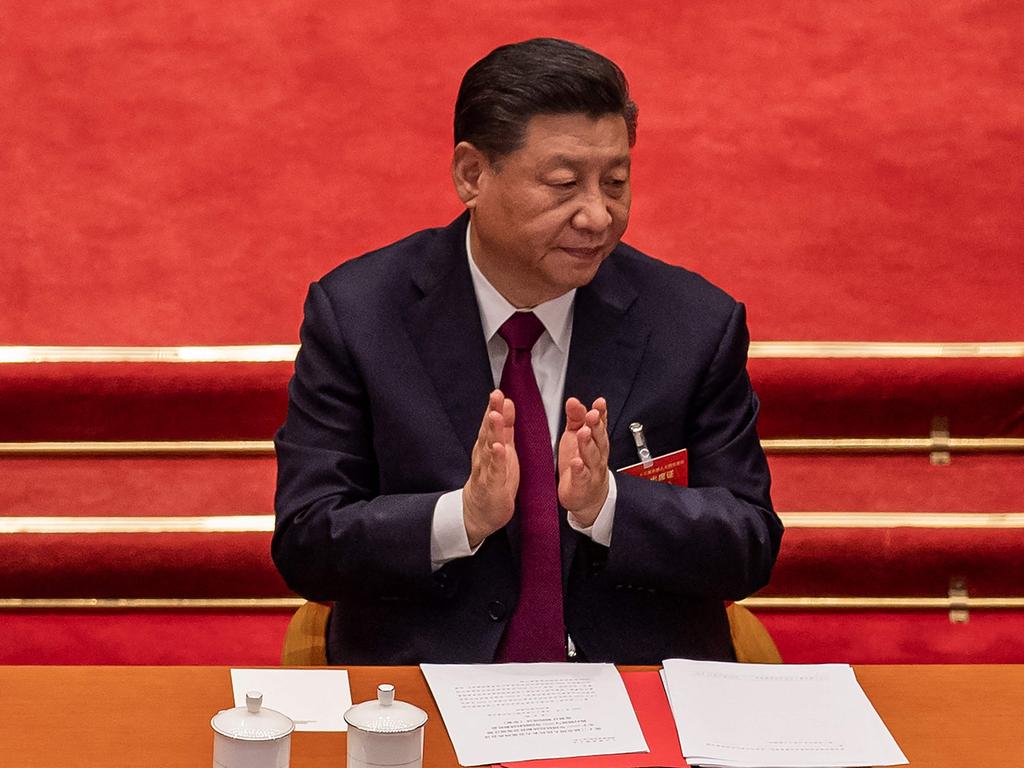
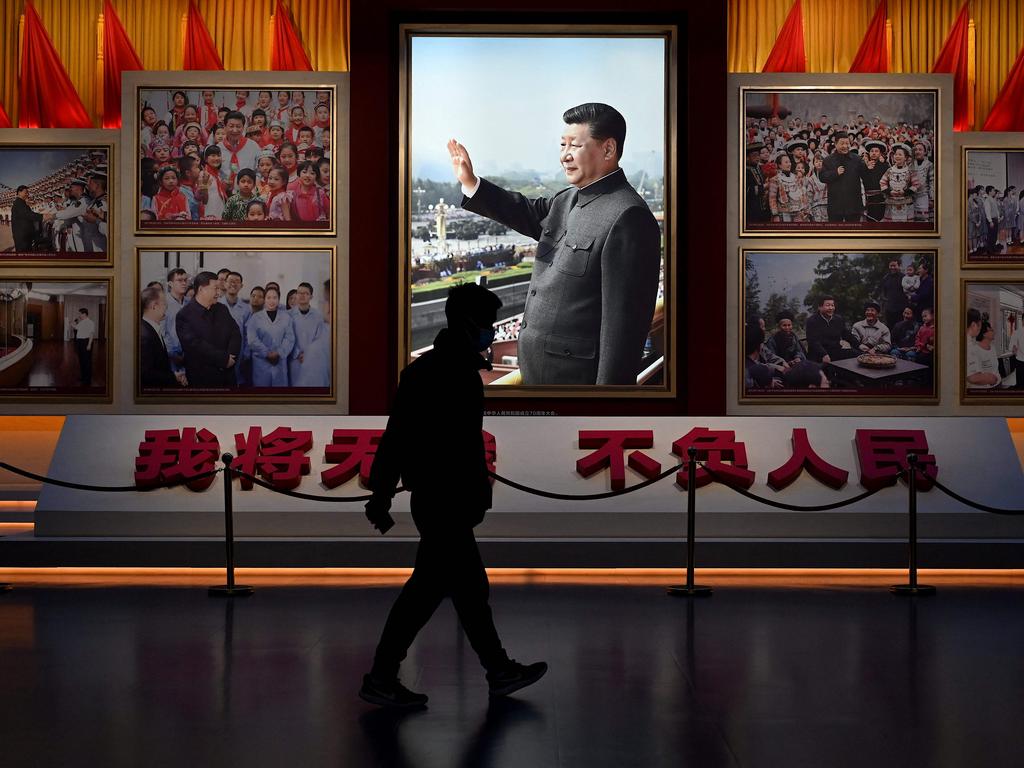
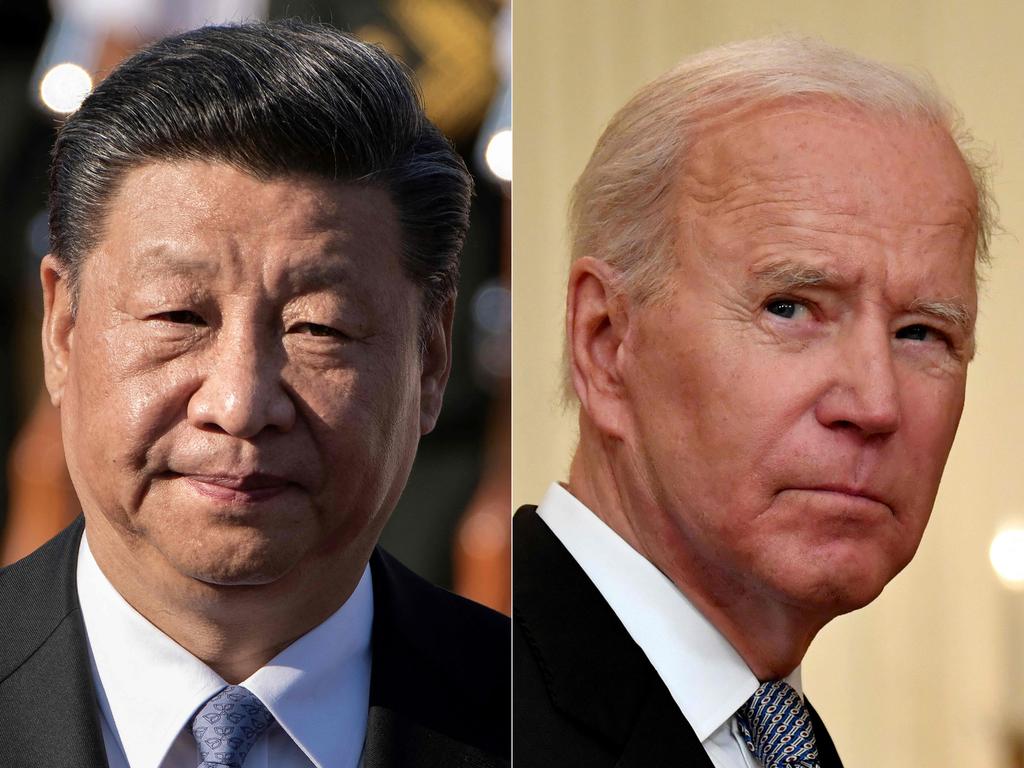
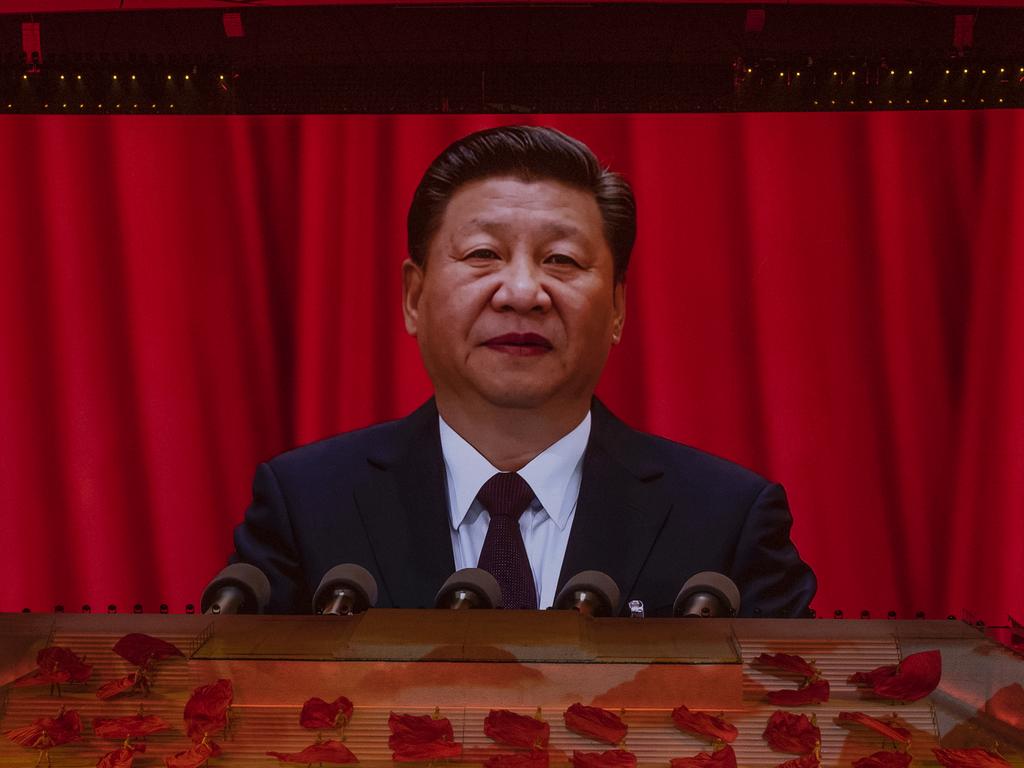


To join the conversation, please log in. Don't have an account? Register
Join the conversation, you are commenting as Logout